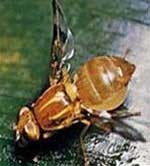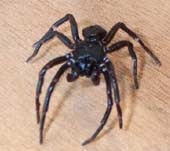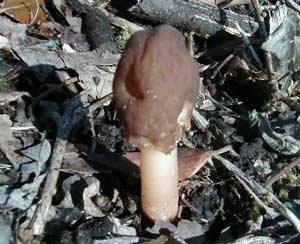Mosquitoes need sleep to function well, just like we do. In fact, laboratory mosquitoes sleep for 16 to 19 hours a day, depending on the species and the level of activity around them.
Sleep in humans is crucial for maintaining the immune system and restoring functions such as tissue repair and protein synthesis. Sleep has also been shown to be vital for memory and brain function. On the other hand, lack of sleep can negatively affect cognitive function and increase the risk of various diseases.
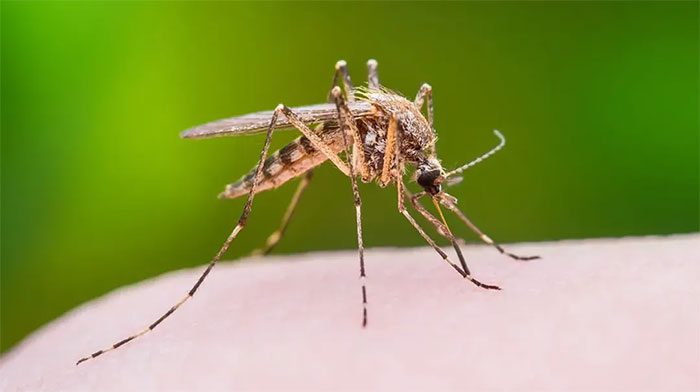
Sleep is also important for mosquitoes.
In a recent study from the University of Cincinnati, researchers demonstrated the importance of sleep for mosquitoes. The study showed that mosquitoes disturbed the night before were more likely to spend the entire following day resting rather than searching for a host to feed on.
The study highlights how significant the biological function of sleep is, even in insects.
Oluwaseun Ajayi, a PhD student at UC and the lead author of the study, expressed surprise at this finding. Sleep is an evolutionarily conserved process across various animal systems, including insects. However, sleep in mosquitoes (vectors of disease) had not been directly verified before.
This is surprising because the circadian rhythms that have been thoroughly studied in mosquitoes are also influenced by sleep. Additionally, the phenomenon of restorative sleep has been observed in other insect species such as honeybees and fruit flies, as well as in humans.
Researchers from the College of Arts and Sciences at the University of Cincinnati and the Virginia Tech Department of Biochemistry found that studying sleep patterns in mosquitoes is a challenging task.
They spent over a year developing effective research protocols for studying the phenomenon. Mosquitoes are easily disturbed by the presence of an observer because they perceive humans as potential hosts. According to biologist Joshua Benoit, this means that any experiments on mosquito sleep are likely to be interfered with by the presence of humans nearby. Benoit shared: “It’s hard to quantify mosquito sleep the moment you step into the room.”
Mosquitoes detect the presence of potential hosts through body heat, odors, movement, vibrations, and carbon dioxide (CO2) that we exhale from our lungs and release from our skin. Therefore, researchers had to keep mosquitoes in isolation rooms away from other rooms and use cameras and infrared sensors to record data without disturbing them. The research team then used this video data to analyze mosquito behavior.
In this way, scientists studied the sleeping and foraging behavior of three mosquito species over about a week. Between activities, mosquitoes typically spend a lot of time resting on a surface to conserve energy and are not easily detected when they are actually sleeping.
However, scientists identified a subtle postural change that occurs when mosquitoes sleep. Ajayi noted: “When mosquitoes enter a sleep-like state, their hind legs droop, and their bodies come closer to the surface.”
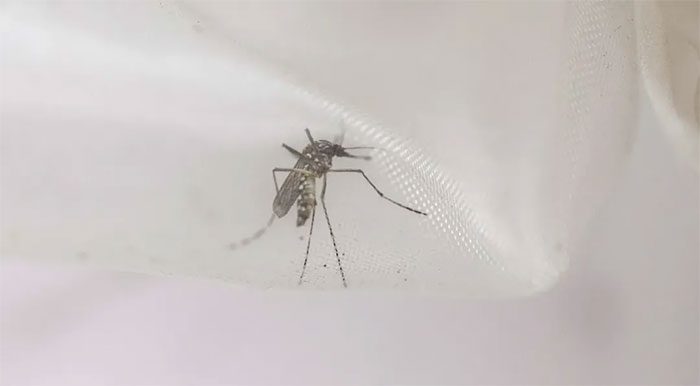
Mosquitoes too fatigued from lack of sleep are also less likely to land on hosts.
Using this knowledge, researchers were able to determine from the footage how long mosquitoes sleep. The three species under investigation sleep at different times during the 24-hour cycle. Aedes aegypti primarily sleeps at night while Anopheles stephensi is most active at night, sleeping during the day. Culex pipiens, which seeks a meal at dusk, sleeps both during the day and at night.
In a second experiment, researchers made sleep-deprived mosquitoes active during the times they would typically be sleeping. They did this by shaking the mosquito containers regularly during that period.
While more than 75% of mosquitoes actively flying around were seeking hosts to feed on if they were not sleep-deprived, fewer than a quarter of them showed interest in foraging if they had experienced sleep deprivation. This indicates that the foraging tendency of sleep-deprived mosquitoes decreased by 54%.
Benoit stated: “What surprised me is that mosquitoes need blood to produce eggs, but they are willing to forgo that just to recover lost sleep. They feel the need to go and feed because they need to sleep first.”
Fatigued mosquitoes due to lack of sleep are also less likely to land on hosts both in the laboratory environment and outside. Fatigue also diminishes their blood-feeding ability during times when mosquitoes are typically active.
According to the World Health Organization, mosquitoes cause more suffering to humans than any other animal species. Malaria alone kills over 400,000 people annually. Mosquitoes also carry many other deadly pathogens such as dengue fever and yellow fever. By understanding the circadian rhythms of mosquitoes, researchers hope to find more ways to reduce the risk of mosquito bites and the spread of diseases.
The study has been published in the Journal of Experimental Biology.








































